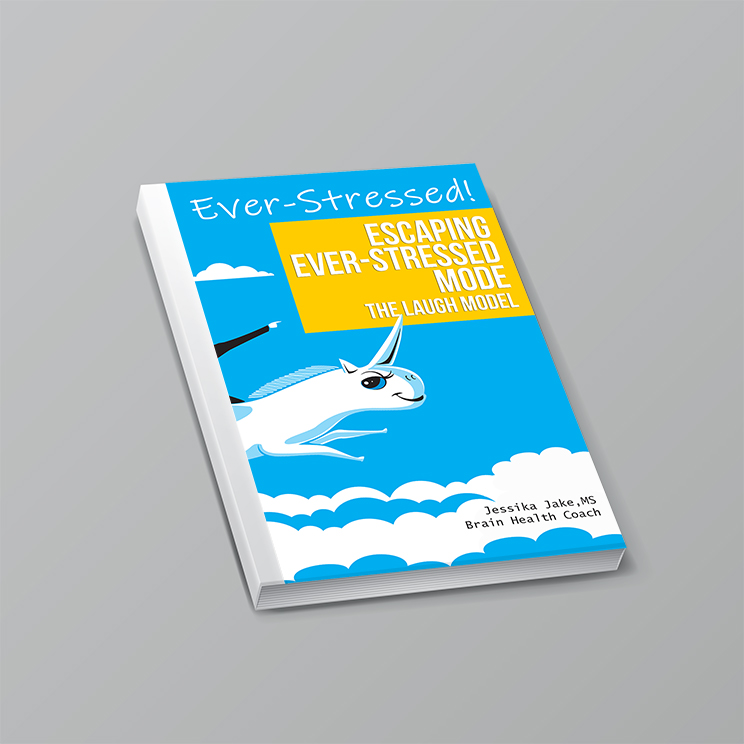This is a spin of the Appendix of my book, Ever-Stressed!
This post is MY OPINION and MY TAKE and meant for entertainment purposes only.
What’s the difference between a vocation and a profession? There is not much of difference in usage these days anymore, but back in the day, “vocation” had stronger ties to purpose, and even religion (calling, God, the whole kit and kaboodle). When Dr. Hunnicutt spoke at the Art & Science of Wellness Promotion he told us how the word “work,” 100 years ago used to be a synonym for calling, service, action, duty, assistance, cooperation, and creation. And now, work’s synonyms are trail, struggle, pain, sweat, and stress.
In speaking with Arthur Woods, co-founder of Imperative he told me how we need to change the conversation we have with kids (and ourselves) about work. (Stop saying bad things!)
On the consumer front, I personally do my best to steer clear of companies who don’t aren’t fair to their workers and product partners. As a product developer I research how manufacturing facilities treat their workers, treat the environment, and get the chemical reports to demonstrate the safety of the goods I am having manufactured.
I do a bunch of market research, so I know that there is a persona called the “Fitspo Mom.” She’s all about a healthy and vibrant life and picks her brands accordingly. She’s willing to pay a bit more for products when she believes in what a company stands for and how that company treats its people and the environments. The trend of mindful and conscious consumption is no joke. 66% of consumers are willing to pay more money to the companies that are committed to making a positive environmental and social impact. Here’s what consumers are caring more and more about:
- Eco-friendliness
- Ethically sourced and produced goods
- Transparency in sourcing
- Transparency in manufacturing
- Non-B.S. social responsibility programs
Consumers care about the workers, work environment, and all points of the supply chain. They care about you.
Moreover, companies that consider themselves “conscious capitalists” or qualify as B-Corps need employees. On the hiring front, to attract the talent of the millennial workforce, companies are urged to provide strong leadership programs, trainings, and alternate work schedules, as millennials were found to:
- Rate training and development as the most valuable workplace benefit
- Value flexible hours (this ranked second to training and development)
- Like to brand themselves with strong workplace leadership programs
- Believe that companies can do better to develop future leaders (75% of millennials surveyed believed this)
- Averaged approximately 6 jobs by the time they were 26
- Value a sense of purpose in their work and place importance on social causes in their work as well
- Actively seek out employers with values similar to their own
On the business front, businesses big and small are taking the Conscious Capitalist Credo: “Conscious Capitalism is a way of thinking about capitalism and business that better reflects where we are in the human journey, the state of our world today, and the innate potential of business to make a positive impact on the world.”
“Conscious businesses are galvanized by higher purposes that serve, align, and integrate the interests of all their major stakeholders. Their higher state of consciousness makes visible to them the inter-dependencies that exist across all stakeholders, allowing them to discover and harvest synergies from situations that otherwise seem replete with trade-offs. They have conscious leaders who are driven by service to the company’s purpose, all the people the business touches and the planet we all share together.
Conscious businesses have trusting, authentic, innovative and caring cultures that make working there a source of both personal growth and professional fulfillment. They endeavor to create financial, intellectual, social, cultural, emotional, spiritual, physical and ecological wealth for all their stakeholders.”
All this to show: from every which angle, consumers, job seekers, and businesses are refusing to settle. So why would you?
Organizations benefit from having fulfilled and inspired workers — to the tune of hand over fist gains in productivity. It’s what we call a win-win. Showing up “on purpose” is something we can all do no matter our present position and role. Imperative.com has a free trial where you can unlock your purpose statement to better understand your North Star. They also have a bunch of resources online. In all of Imperative’s research they found some constants that ring true over the years (hence “North Star”): values, craft, and level of desired impact.
In her book The Regenerative Business, Carol Sanford recommends that businesses adapt a developmental mindset: Let people use their own unique essences in line with company values and goals.
I have a lot to say regarding the “mindsets” of orgs, so I will save that for a future post.
I’ll leave you with a note that someone once sent me:
“One forgets, sometimes, after enough time in the asylum, that one doesn’t really belong there. So don’t forget.”
– A friend, to me, when I needed to hear it
Do you need to hear this too? If YES, then this is a from a friend, through me, to you:
just wanted to write you and say ‘i think you’re fabulous’ and ‘thank you’ for the help. if i had not found another rational human being in this mess i am sure that it would have been much, much more difficult…
…as for the work, well, I don’t know what to say because honestly i feel that a person such as yourself has no business working for the likes of __________.
…anyhow, far be it from me to “advise you” to do anything – i would rather just try to be a voice of affirmation that yes, you are sane, and good, and yes, they are totally off their nuts. like “this sh*t should be in a movie.” rather “if i PUT this sh*t in a movie no one would believe it.”
one forgets, sometimes, after enough time in the asylum, that one doesn’t really belong there. so don’t forget. 😉
Like my writing? Check out my book, Ever-Stressed!

